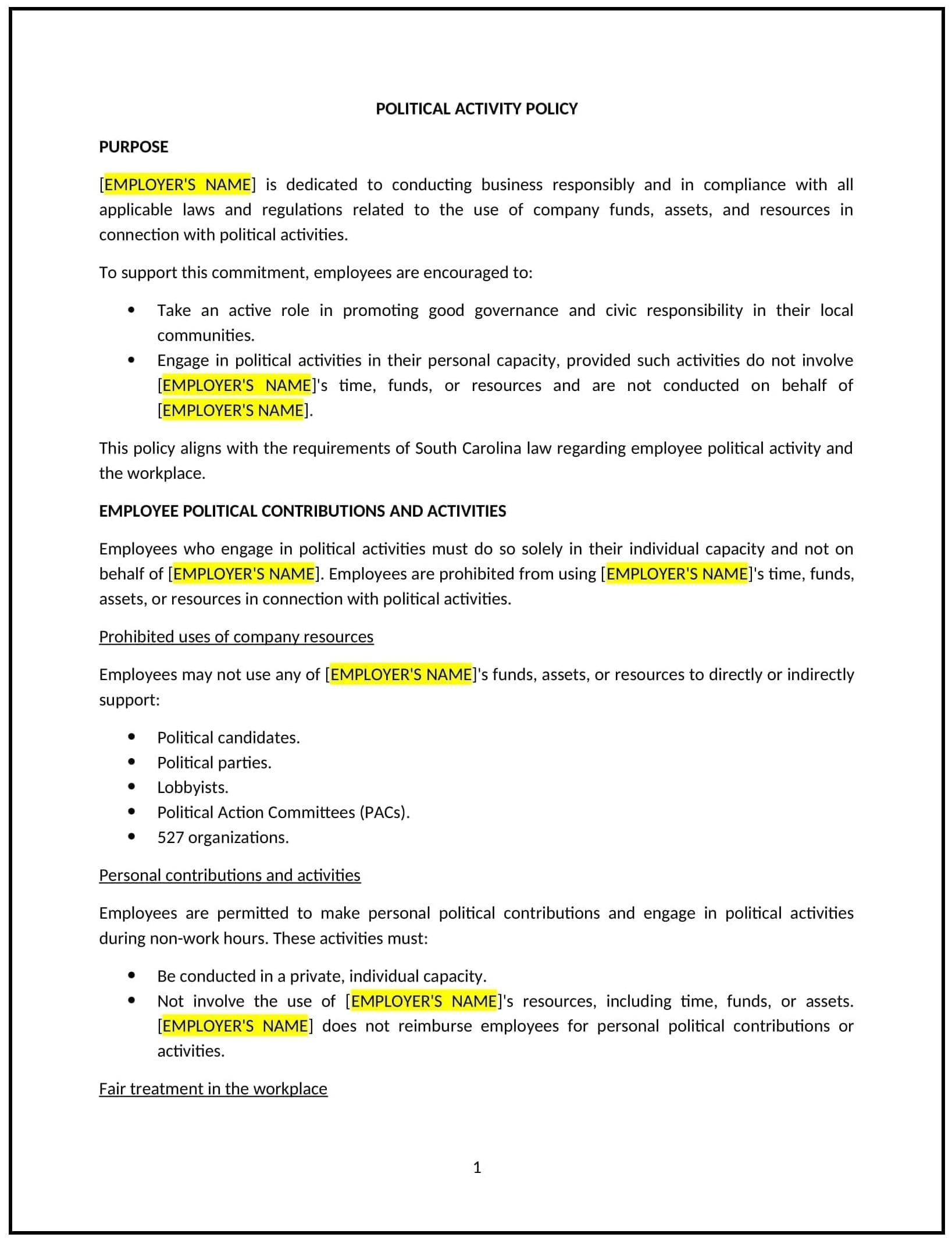Political activity policy (South Carolina): Free template
Got contracts to review? While you're here for policies, let Cobrief make contract review effortless—start your free review now.

Customize this template for free
Political activity policy (South Carolina)
This political activity policy is designed to help South Carolina businesses establish guidelines for employees engaging in political activities, such as campaigning, fundraising, or running for office. It outlines procedures for balancing employees’ rights to political participation with the business’s need to maintain neutrality and avoid conflicts of interest.
By adopting this policy, businesses can support employees’ civic engagement while protecting the organization’s reputation and ensuring workplace professionalism.
How to use this political activity policy (South Carolina)
- Define political activities: Explain what constitutes political activities, such as campaigning, fundraising, or holding public office.
- Establish boundaries: Specify whether employees can engage in political activities during work hours or using company resources.
- Address conflicts of interest: Outline procedures for identifying and managing situations where political activities could conflict with the employee’s job responsibilities or the business’s interests.
- Set disclosure requirements: Require employees to disclose political activities that may impact their work or the business’s reputation.
- Train managers: Educate supervisors on handling political activity disclosures and maintaining workplace neutrality.
- Review and update: Assess the policy annually to ensure it aligns with evolving business needs and societal expectations.
Benefits of using this political activity policy (South Carolina)
This policy offers several advantages for South Carolina businesses:
- Supports civic engagement: Demonstrates a commitment to employees’ rights to participate in the political process.
- Maintains neutrality: Ensures the business remains impartial and avoids endorsing specific political candidates or parties.
- Aligns with best practices: Provides a structured approach to managing political activities in the workplace.
- Reduces conflicts of interest: Minimizes the potential for political activities to interfere with job responsibilities or the business’s interests.
- Builds trust: Shows employees that the business values their civic participation while maintaining professionalism.
Tips for using this political activity policy (South Carolina)
- Communicate the policy: Share the policy with employees and include it in the employee handbook.
- Provide training: Educate managers on handling political activity disclosures and maintaining workplace neutrality.
- Monitor adherence: Regularly review political activity disclosures to ensure compliance with the policy.
- Address issues promptly: Take corrective action if political activities conflict with the employee’s job responsibilities or the business’s interests.
- Update regularly: Assess the policy annually to ensure it aligns with evolving business needs and societal expectations.